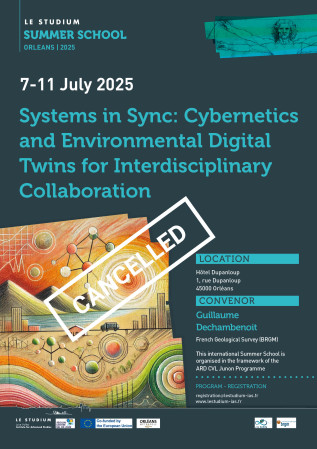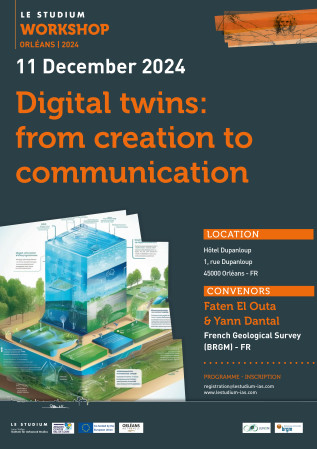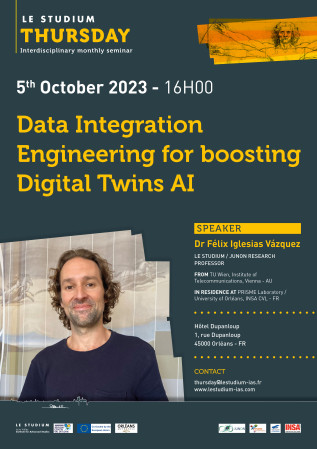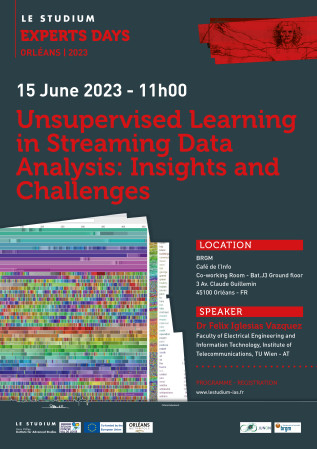ARD CVL JUNON PROGRAMME
CONTEXT & OBJECTIVE
JUNON is an ambitious research programme to develop a digital research cluster on the continental environment (agricultural, urban, forestry and river) in the Centre-Val de Loire region.
This cluster aims to design digital services to improve the monitoring and understanding of the environment, for better management of natural resources.
JUNON is led by BRGM, the French geological survey, (Bureau de Recherches Géologiques et Minières), and involves five research organisations and numerous laboratories (Centre INRAE Val de Loire, CNRS, University of Orléans, University of Tours). It also involves non-academic partners, such as the DREAM water and environment competitiveness cluster, the Agreen Tech Valley cluster, Orléans-Val de Loire Technopôle and LE STUDIUM IAS.
JUNON is a continuation of the ARD 2020 PIVOTS programme, which has promoted the emergence of seven experimental platforms dedicated to monitoring, environmental metrology and remediation of the various anthropised environments (subsoil/soil/water/air).
RESEARCH PROJECTS
- JANUSS (Soil/Air)
Air quality and greenhouse gases in the Centre Val de Loire region - synergy of data players for the development of digital twins "agro/ecosystems-atmosphere" interface
i) Long-term observation of relevant variables to highlight the responses of the atmosphere and continental surfaces to anthropogenic disturbances, and experimentation to deepen understanding of key processes
ii) Fine-scale modelling of these processes, providing critical data for predictive and remedial approaches
iii) New approaches based on artificial intelligence (e.g. Machine Learning) allowing the integration of the above data and models into more holistic and transversal approaches favouring synergies and controlling antagonisms.
- JUNEAU (Water)
Quantitative and qualitative behaviour of La Beauce plain aquifer - Contribution to the elaboration of two digital twins WATER-quantity and WATER-quality on the basis of a common observatory representative of the Beauce plain
i) Acquisition of the data necessary to assess the availability of the water resource in quantitative terms
ii) Contribution to the improvement of knowledge on the hydrogeological functioning and the presence, transfer and behaviour of some anthropogenic contaminants
iii) Optimisation of the monitoring of the quantity and quality of groundwater
- DATA
Collection, storage, exploration, representation and combination of the JUNON programme's data
i) Retrieving and centralising the data needed to build the digital twins within the management system for the geoscientific data made available
(ii) Providing access to the data and sufficient computing power to process them in a secure and traceable manner.
iii) Use of digital tools for interrogation and automated processing of these data, allowing them to be categorised, explored and combined.
- DIGITAL TWINS
Interoperability of data and software bricks, design of environmental digital twins as well as their implementation and evaluation.
i) Management of the interoperability of data used and developed in other projects in order to integrate them into the digital twins of the plain
ii) Steering the methodology for creating the twins and capitalising on the data
iii) Integration of the different bricks, implementation and evaluation of the digital twins thus created
iv)Use of sovereign components as well as guaranteeing the security of the Data Lake in accordance with European rules (RGPD...)
- PREDICTION
New multi-source and explainable predictive AI models for environmental data analysis and monitoring.
i)Development of predictive models based on learning (Deep Learning) using heterogeneous and multi-varied data (complex environmental data) from the EAU project in particular (or even Soil/Air, PIVOTS, FarmViz).
ii) Development of procedures for continuous learning of these models (throughout use) to adapt to the evolution of the observed environment
iii) Coupling between mechanistic models and AI methods on the one hand and adding business knowledge to AI models on the other.
iv) Analysis and evaluation of the behaviour of classical predictive models and AI models and implementation of strategies to help choose the most suitable ones for a given prediction context (observed and predicted data, environment or sensor constraints, ...)





